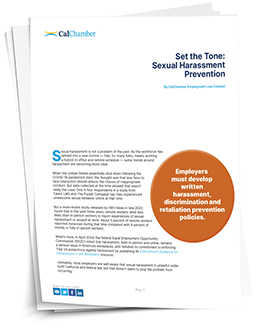
Sexual harassment is not a problem of the past. As the workforce has settled into a new normal — that, for many folks, means working a hybrid in-office and remote schedule — some trends around harassment are becoming more clear.
When the United States essentially shut down following the COVID-19 pandemic’s start, the thought was that less face-to-face interaction should reduce the chance of inappropriate conduct. But data collected at the time showed that wasn’t really the case: One in four respondents in a study from Talent LMS and The Purple Campaign say they experienced unwelcome sexual behavior online at that time.
But a more recent study released by 19th News in late 2023 found that in the past three years, remote workers were less likely than in-person workers to report experiences of sexual harassment or assault at work: About 5 percent of remote workers reported instances during that time compared with 9 percent of mostly or fully in-person workers.
Ultimately, most employers are well aware that sexual harassment is unlawful under both California and federal law, but that doesn’t seem to stop the problem from occurring.
CalChamber's free "Set the Tone: Sexual Harassment Prevention" white paper explains what California law requires of employers and provides best practices.
Updated June 24, 2024

